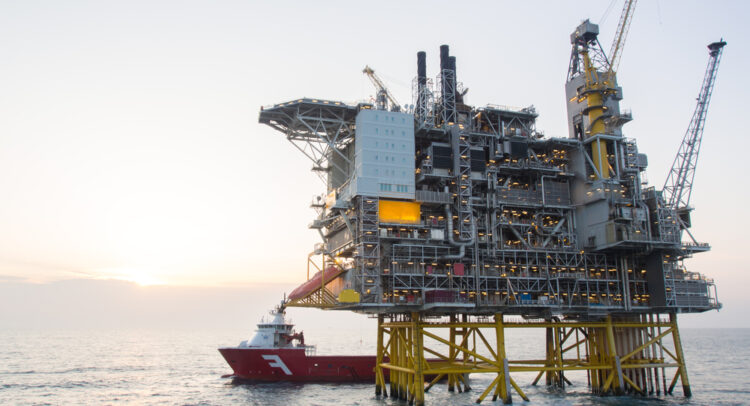Repsol SA ((REPYY)) has held its Q1 earnings call. Read on for the main highlights of the call.
Elevate Your Investing Strategy:
- Take advantage of TipRanks Premium at 50% off! Unlock powerful investing tools, advanced data, and expert analyst insights to help you invest with confidence.
Repsol SA’s latest earnings call presented a mixed sentiment, highlighting strategic advancements in upstream and renewables, alongside solid cash flow and shareholder returns. However, the company also faced increased debt and challenges in refining and production, which were notable concerns during the call.
Upstream Expansion with NEO Energy
Repsol has formed a joint venture with NEO Energy to merge their UK North Sea assets, creating one of the largest operators in the region. This strategic move is projected to result in a production of 130,000 barrels per day by 2025, marking a significant expansion in Repsol’s upstream capabilities.
Successful Asset Rotations
The company completed its fifth asset rotation in Spain and its first in the U.S., which validates Repsol’s growth strategy in renewables. Notably, the U.S. rotation included a 46% stake in a 777 MW portfolio valued at $795 million, underscoring the company’s commitment to renewable energy.
Cash Flow and Shareholder Returns
Repsol reported cash flow from operations, excluding working capital movements, of EUR 1.6 billion. The company implemented a share buyback program equivalent to EUR 350 million and confirmed a dividend of EUR 0.5 per share, reflecting strong shareholder returns.
Resilient Customer Division
The customer division demonstrated resilience with an adjusted income of EUR 160 million, marking a 3% increase over Q1 2024. Additionally, EBITDA improved by 24% year-over-year, showcasing the division’s robust performance.
Growth in Low Carbon Generation
Repsol’s low carbon generation segment reported an adjusted income of EUR 5 million, a significant improvement from a loss of EUR 6 million a year ago. This growth was driven by higher power prices and increased renewable production.
Increased Net Debt
The company’s net debt increased by EUR 0.8 billion to EUR 5.8 billion since December. This rise was attributed to seasonal working capital increases and shareholder remuneration, presenting a challenge for Repsol.
Refining Margin Decline
Repsol’s industrial division faced a significant decline in adjusted income, dropping to EUR 131 million from EUR 731 million in Q1 2024. This was primarily due to lower refining margins, highlighting a challenge in the company’s operations.
Production Challenges and Maintenance
Production levels were reported at 550,000 barrels equivalent per day, a 3% decrease quarter-over-quarter. This decline was impacted by maintenance activities in the UK and divestments, indicating operational challenges.
Forward-Looking Guidance
Repsol’s guidance for the year remains steady, even under stress scenarios with Brent crude at $65 per barrel and other economic indicators. The company projects cash flow from operations between EUR 5.5 billion and EUR 6 billion. Repsol’s strategic joint venture with NEO Energy is expected to produce 130,000 barrels per day in 2025, and the company continues to make progress in its renewable asset rotation strategy.
In summary, Repsol’s earnings call highlighted a balanced outlook with strategic advancements in upstream and renewables, alongside robust cash flow and shareholder returns. However, the company faces challenges with increased debt and declining refining margins, which require careful management moving forward.
















